“No, I could never read this book again.”
The eighteen of us sat in a classroom no janitor’s touched in weeks, evidenced by the dust bunnies on my backpack, not-looking at whomever dared to speak. The first term of grad school, my first class analyzing story and craft. Overwhelmed, I poured through critiques others wrote only to be thumped for not sharing my own “untainted” thoughts. Martin Amis’ The Rachel Papers was the first I tried to study free of the evil critic taint.
“Why?” 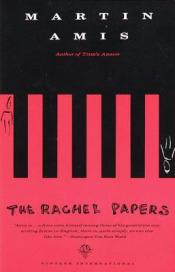
“Because I don’t like Charlie. He’s an asshole.”
“So you don’t think a story can sell if you don’t like the main character.” Half the room nodded with the teacher, whose demeanor reminded me of a spectacled old grizzly bear.
I half-raised my hand. The teacher, a loud atheist who found my faith “quaint,” peered at the table-space before me to make sure I had no pile of articles painted by highlighter. “Jean?”
“Well,” I coughed, hated talking in that space, squirmed in the plastic chairs all universities think are somehow comfortable for hours of lecture, “A story can still be good just because you don’t like someone.”
My classmate turned to me, confident in her age and skill. “But I don’t care about him.”
“That doesn’t make the story less good.”
Yeah, I wasn’t much for eloquence back then. Not that my classmate was wrong, per say. Who wants to root for a jerk’s success? But there are other characters in the story beside the protagonist, so I think it depends on this question:
Will the story transform your character, or does your character transform the story?
The Rachel Papers fulfills the latter: Charles Highway makes his mark on Rachel and a number of other people, but remains an unchanged blighter from start to finish.
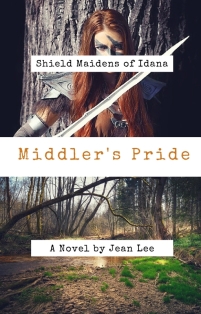 In my serialized YA fantasy Middler’s Pride, main character Meredydd begins as a pompous ass. Oh, she’s nice enough with some characters back home, but once she meets the other Shield Maiden recruits in her training group, she declares herself superior, a legend who simply hasn’t been noticed yet. The latest scene I drafted amplifies the conflict between her and the other girls:
In my serialized YA fantasy Middler’s Pride, main character Meredydd begins as a pompous ass. Oh, she’s nice enough with some characters back home, but once she meets the other Shield Maiden recruits in her training group, she declares herself superior, a legend who simply hasn’t been noticed yet. The latest scene I drafted amplifies the conflict between her and the other girls:
III.ii.
The river ran noiselessly, like a shadow. One could leap over it on horseback without trouble. If one could get a horse here. A hand barrow would do the trick, made with her wrecked tunic and some thick sticks and haul the weapons a few at a time. The ground, though… Despite the fresh sun, the land felt cold, sticky, and damp, like mud in the earliest of spring. Yet the trees were in full summer leaf, and the rabbits and family of deer who fed on the meager ferns and asters took no notice of Meredydd. Good. A few snares should mean decent eating through the whole month. The mushrooms didn’t look all that bad, either. Tegan must be used to a much fatter landscape.
Near the Beaumains, maybe?
What did she know about the Beaumains, that the name would draw such hate into her face? Maybe she grew up near them, too. Had family.
Mer pulled out the clay token Aberfa had made for her. It filled the palm of hand, its lines from the Bread Code they’d created as children. Friend. Always.
Girl chatter. The rabbit and deer scattered. UGH. They arrived as though bound together, like some sort of band, or, group, or…whatever. And what was Tegan doing with them, anyway? Some friend she was, chumming up with Elle and Wynne for no reason. Aberfa understood loyalty.
“This can’t be the River Galene,” Elle leapt about like a lame doe and landed atop an old tree stump next to Mer. “It’s so puny.”
Wynne still heaved deep breaths, but managed to say, “It’s not. I live. By the proper. This connects. There.” She pointed south. “Not far. Rode. The barges a few. Times.”
A low ripple of cracks, low, swelled up, THUNK—Elle’s foot fell through the trunk, but the rest of her remained safe and sound thanks to Mer’s lightning reflexes. Elle smiled in thanks. Great. Just let GO.
“Hold still, Elle,” Tegan brushed the dust and splinters. Paused. “Hey, Mer, look at this.” Finally! Mer untangled herself from Elle and knelt next to Tegan. Sure enough: “It’s like the plants from yesterday.”
Meredydd took a deep breath, fixed her gaze so that she saw only Elle’s calf. “And the stag under the curse of the Cat Man.” Time the eyes, don’t move too fast. This must be a dramatic moment of the legend’s tale…
Elle thrust her fingers into it like an idiot. “Doesn’t feel much like a curse to me.” She held her fingers towards Wynne like she would know any better. “I mean, it’s a bit smelly. Sure this isn’t just old bat scat?”
Tegan took some and rubbed it between forefinger and thumb. “From what you said, Mer, this stuff seems awfully watery. And more grey than black.”
“Remnants of old black magick, then?” She wasn’t going to be dumb enough to rub her skin in that stuff. Idiots. “Look, we have orders. We have to clean the weapons, which means carrying them here.”
“And ruin our clothes like you ruined yours?” Elle’s laugh sounded like a dog barking at the wind. “No thank you. We think it’ll be loads easier to carry water to the fort instead. Boil it up. Clean the weapons that way.”
Mer bit the inside of her lip. “We?”
The three of them looked at each other like this “we” was perfectly normal. That of course they would work together. Gods forbid they not listen to orders. Again. Oh that’s right, they’re not.
“We were ordered—“
“And we’re going to do fulfill that order, Mer.” Why was Tegan looking at her like some rabid animal? “We’ll clean the weapons, but carrying them here is foolish. We can’t afford to ruin what little we have to wear. You really want that black mold stuff on your armor?”
Meredydd felt her feet step back. No. She couldn’t retreat. But she didn’t want her armor wrecked before it saw battle, either. “We’re here to train, build our strength. Become proper soldiers.” Well. She eyed Wynne. “Some of us, anyway. Gods know what you’re doing here.”
“Hey!” Elle stepped into Mer’s eye-line and gave glare for glare. “We’ve all of us reason to be here, and become soldiers. Not all of us have been trained straight from the cradle, or whatever it is you did with your precious Shield Maiden Nanny.”
“Don’t you—“ Mer formed a fist and swung.
Elle caught her fist. Held it.
Try the other fist? It won’t stop shaking…
Those damned red eyes are daring her to.
“You can help us here, or you can walk away.”
Her fist shook inside Elle’s. So. Humiliating. Her eyes burned like fire, all those legendary scars, too–
How dare she look a legend.
How dare they not…listen, and just…
“Fine,” she said with clenched teeth, and pulled back. Walked around.
“You dropped this.” Wynne’s hand shook as she held it out: Aberfa’s talisman.
Shaking hand.
They even take her weakness from her.
Mer snatched the talisman away and marched back to the fort, black thoughts circling.
They’re not listening to orders because ol’ Captain Tree Trunk is incompetent.
Terrwyn’s too far off, blast it.
Well.
Captain Vala just needs to be informed of the situation. And once she sees how they disregard her orders, then, THEN there will be some proper teamwork under the true leader of this group.
The true legend.
Mer’s the kind of girl I would have feared and hated in school. I would never want to hang around her, let alone be related to her.
Yet I created her. I WANT her to be this way right now. Why?
Because Meredydd, like so many kids, gosh, like so many of us grownups, has to realize she isn’t the hot shit she thinks she is. Countless stories include that change: take my primary influences for Middler’s Pride, Michael Dellert and Diana Wynne Jones. 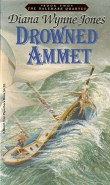
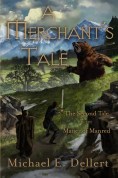 The protagonist Corentin in Dellert’s The Merchant’s Tale is a young guy who treats the others in his caravan like nobodies, but by the end he’s willing to respect them and listen to (most of) what they have to say about traveling through Droma. In Jones’ Drowned Ammet, Mitt sees the aristocracy as a bunch of gluttonous leeches while Hildrida looks on commoners as nasty imbeciles. Of course they’re stuck on a boat together, and treat each other like crap for a good long while. But unlike Charles Highway, these two cannot help but be influenced by events, and therefore change their perspectives.
The protagonist Corentin in Dellert’s The Merchant’s Tale is a young guy who treats the others in his caravan like nobodies, but by the end he’s willing to respect them and listen to (most of) what they have to say about traveling through Droma. In Jones’ Drowned Ammet, Mitt sees the aristocracy as a bunch of gluttonous leeches while Hildrida looks on commoners as nasty imbeciles. Of course they’re stuck on a boat together, and treat each other like crap for a good long while. But unlike Charles Highway, these two cannot help but be influenced by events, and therefore change their perspectives.
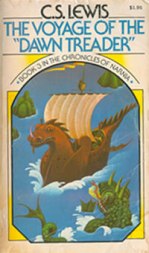 As a reader, my first experience with this kind of character was that turd of a cousin Eustace in C.S. Lewis’ The Voyage of the Dawn Treader: the selfish idiot who refuses to take in the world around him until his selfishness puts him under a curse that only Aslan can break. Eustace finally must face that he cannot do it all. He cannot save himself.
As a reader, my first experience with this kind of character was that turd of a cousin Eustace in C.S. Lewis’ The Voyage of the Dawn Treader: the selfish idiot who refuses to take in the world around him until his selfishness puts him under a curse that only Aslan can break. Eustace finally must face that he cannot do it all. He cannot save himself.
That moment has stuck with me through the past couple of decades—not just because of my faith, but in a story, I see that moment as being The Ultimate Moment. The protagonist cannot save herself her own way, or be the lone savior of her world. It is through the sacrifice of the most treasured elements within her that a new power comes through love, friendship, light. Everything, the presumed inevitable end, the web-ties of the characters, all alter because of that fall to her knees in surrender. Such changes snap and re-bind the page to the reader herself, for she knows the really good stuff is coming.
Now to give it.
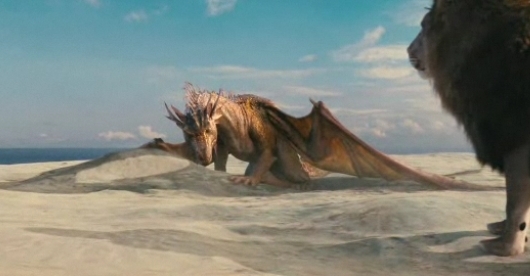

It’s a fascinating question. Particularly the protagonist who remains unrepentently revolting throughout. It can be done – one of Joe Abercrombie’s protagonists in his successful First Law seriesis a torturer who enjoys inflicting pain, but he was my favourite character. He was horribly tortured himself and is shockingly hilarious as he discusses his own inhumanity and his plans for those poor souls sent to him for interrogation. So vulnerability and humour can certainly work to endear us to those less attractive characters and make a book a whole lot spikier and more interesting as a result.
LikeLiked by 1 person
Oooo, excellent point! When the human nature dares to acknowledge it has a flaw, then that character does indeed become all the more fascinating.
LikeLiked by 1 person
I don’t know what to say. I tweeted instead.
LikeLiked by 1 person
🙂 That’s fine. 🙂
LikeLiked by 1 person
That’s handy then
LikeLiked by 1 person
Martin Amis…a fine talent, rubbish content for the main part. Interesting read Ms Lee.
LikeLiked by 1 person
Thanks. 🙂
LikeLiked by 1 person
Does that mean you like Amis? You write ten times better than him Ms Lee
LikeLiked by 2 people
Like? No. But his was the first story I read where the main character was a prat (hopefully I used the term properly this time 🙂 but I read on because I wanted to know what happened to *other* characters. I realized it was possible to still have a story even if the focal point was a total dickweed. A lesson learned, as it were. 🙂
LikeLiked by 1 person
My apologies if my comment seemed aggressive…upon second reading it seemed thus. You did well to read on – re the book you read. I find him so very gifted with words (I once read a whole book but for the life of me cannot recall the title) yet he lacks imagination in content. I am all for the protagonist as a jerk if the fiction surrounding said jerk is worthwhile. Gosh Ms Lee you having me thinking…a good thing for an old brain! My thanks.
LikeLiked by 1 person
This gets me thinking, too. I’ve been meaning to read the elder Amis, especially as he wrote a James Bond novel Bo quite liked. I also tried to read other work by Martin Amis, but could never finish. The interest just wasn’t there.
LikeLiked by 1 person
Spot on. James Bond books. I well remember us group of schoolboys in a huddle picking out the rude bits (not that they were rude by today’s standards) from From Russia with Love! Times have changed!
LikeLiked by 1 person
Indeed! Bo has found a few non-Ian Fleming Bond books that he’d recommend, including Amis’ contribution. I’ll bother him for the titles at some point. 🙂
LikeLiked by 1 person
Do you know I…shamefully…haven’ read more than 2 maybe 3 books this whole year. I really must start again.
LikeLiked by 1 person
Me, too. We’ll make it a requirement of our 2017, shall we?
LikeLiked by 1 person
I’m thinking of taking a couple of weeks off blogging over Christmas to read all the books I got as presents last Christmas as it so happens…plus I had promised myself when starting the book I am arguable writing to have it finished by the new year…no hope!
LikeLiked by 1 person
Oh, I know what you mean. I swore to myself to have a book proposal done and a different fiction of mine edited up by year’s end. Not happening at all.
LikeLiked by 1 person
And your compliment made me squishy inside. Thank you, Friend. xxx
LikeLiked by 1 person
Look at Hannibal Lector. He’s never repentant but when he says how he ate some orchestra conductor for murdering his fav symphony or wants to set about the revolting kid he’s stuck next to, cattle class on a long distance flight, you totally root for him. Well I do. Your question is difficult though. For me that protagonist has to appeal, otherwise it’s hard to want to read about them even if they do change the novel. Personally I love writing flawed people. I prefer to take risks that way because I love when people are not self aware. How many of us truly, truly are? I think you can bring humour into that. You can have a protagonist behaving in a way that the reader and other characters can see and think is pretty awful, but the protagonist doesn’t see it. I call it the ‘those without a mirror’ syndrome where a flawed protagonist thinks that other person would be greatly improved if they had one when in fact they’re the one who could do with the mirror.
For me though writing that character, they have to make a journey and that is towards becoming something better and you can have a lot of fun kicking them along the path.
LikeLiked by 1 person
Fantastic example. I have loved most of the stories filmed and written about Hannibal–all but HANNIBAL RISING. He is an unchanging character in a world constantly affected by him. The prequel…ugh. As the American comedian Patton Oswalt said (in re: to the Star Wars prequels): “I don’t care where the stuff I love comes from! I just love the stuff I love!”
Bo just pointed out Hannibal is not always a protagonist, per say: in HANNIBAL he is a protagonist I root for, but he isn’t a jerk in the mean-spirited sense of the word, nor is he the most unlikeable character in the book. Hannibal is the avenging angel upon the true jerks in that story. 🙂
Gosh, this debate is fun! I need more craft questions like this …
LikeLiked by 1 person
See there yah go. I have my uses x
LikeLiked by 1 person
Lol! 🙂
LikeLike
Eustace is a great example! The journey is fun to go along on- and I love the book. The husband brought up the example of Seinfeld (not a book, but still, a story:) as an example of characters who aren’t likeable and don’t really transform, but somehow it works. My biggest beef is a protagonist that you know the author WANTS you to like, but they never really convince you that you should- especially when other characters are talking about how great this protagonist is and it just never…shows…up. 🙂
LikeLiked by 1 person
True on Seinfeld! I think the latter half of my question applies there: the characters never really transform, but they constantly impact the lives of others.
YES. That sounds awfully familiar…this series about…hmm…there was this brooding chick, and this sparkly dude, and everyone adored them without any real reason… 😉
LikeLike
Lol- do you know the “sparkly vampires” song that…I think Rifftracks did? It makes me oh so happy!
LikeLiked by 1 person
I do not, but I most certainly will before the weekend ends. 😉
LikeLike
He he he- man, I wish I was listening to it with you, friend. It is one of my favorite things. “I love you because you don’t kiiiiillll me! 🙂 Ah the romance!!! If that’s not a basis for liking a protagonist, what is?
LikeLiked by 1 person
Indeed! I should use that in story, since clearly that’s what people think is awesome… 😉
LikeLike
Example of a flawless protagonist is Vin Diesel in The Pacifier movie, but it is a comedy 🙂
LikeLiked by 1 person
LOL! I don’t think I would have ever, EVER thought you to see that film, Dear Friend. 🙂
LikeLiked by 1 person
I did, and I laughed 🙂
LikeLiked by 1 person
It’s a good question. In Wuthering Heights, Heathcliff is not likable and for some readers it’s a challenge..
LikeLiked by 1 person
So nice to get back to your blog after my lengthy travels in India. Now for some catching up all over the world of blogs! And yes, some jerky characters can grow on you, even if they stay jerky.
LikeLiked by 1 person
Huzzah to your safe return! and yes, they do rather stay with us, don’t they? As a kid, they’re rather like “that’s the opposite of what I want to be,” and as a grownup…hmm. I suppose that’s where we get all annoyed and wonder why we read about them, since we have enough jerks in real life to contend with.
Anyway.
Happy homecoming! 🙂
LikeLiked by 1 person
Ah, yes, the jerks in real life. Too many everywhere. Too bad there isn’t a spray!
LikeLiked by 1 person
No kidding. I’d happily arm my daughter with it. 🙂
LikeLiked by 1 person
This is a great topic! I have actually been mulling it over for a few weeks as I look back at one of my old manuscripts. My readers said they didn’t like the main character. She wasn’t nice to the people around her and she was even judgmental of them and my response was: “so? Why do protagonists always have to be so righteous and good? Can’t an MC be… seriously screwed up?” I’m glad to see I’m not the only one and goodness knows I don’t have the answer for how to do it, but there definitely has to be some part of the story (perhaps redemption, perhaps the villain is the good guy, who knows) that makes the story worth reading. Thanks for posting this! Great read!
LikeLiked by 1 person
So glad you dug this! A friend and I have often discussed a certain Young Adult series involving sparkling undead folk, and the protagonists that, well, don’t do much of anything. She read somewhere that because the female protagonist is so bland, a reader can easily imprint herself on her in the story. How strange most writers like to create characters, and not imprints…
Like I said on my post, I think people forget there’s two sides: there’s the protagonist who changes, but there’s also the protagonist who changes OTHERS. That kind of person ain’t always a sweetheart. 😉
LikeLiked by 1 person
How does one imprint themselves on a bland character? Are they supposed to be a mirror of sorts, allowing us to envision ourselves in the character’s place? Because maybe it’s just me, but a bland MC would be worse than a jerk MC.
LikeLiked by 1 person
You got it. The website Cracked did this bit on why Keanu Reeves was so popular in the role of Neo in the MATRIX. It’s because of that bland thing, too. And I agree with you–I’d rather read about a complete person than a hollow mirror.
LikeLiked by 1 person
Huh… now that is fascinating. Though, the same could be said about Keanu Reeves role in John Wick. I didn’t really see much character in him, but he was a blank badass that people could enjoy watching. Strange… So strange…
Strange… So strange…
LikeLiked by 1 person
Yes! I’ve heard it said about Reeves as Neo in The Matrix movies, too. It’s very strange, indeed.
LikeLiked by 1 person
Oh quaint one, regarding this section:
” I see that moment as being The Ultimate Moment. The protagonist cannot save herself her own way, or be the lone savior of her world. It is through the sacrifice of the most treasured elements within her that a new power comes through love, friendship, light. Everything, the presumed inevitable end, the web-ties of the characters, all alter because of that fall to her knees in surrender. Such changes snap and re-bind the page to the reader herself, for she knows the really good stuff is coming.
Now to give it.”
BRILLIANT doesn’t begin to cover it.
While reading your post I was reminded of the unlikable character Zachary Gray in Madeleine L’Engle’s novel “A Ring of Endless Light.” He was an ass, and inadvertently caused the death of a beloved father due to his selfishness.
Zach exhibited signs of bipolar disorder, but bipolar was never discussed in YA novels back then when L’Engle wrote the book. He could be charming & exuberant & wildly risktaking one moment, and a total shit the next. In any case, he was a magnetic character and he added so much to the story! Moreover, he revealed growing awareness about his flaws and he knew he needed to change. In any case, if he was absent, the narrative would suffer, and while I didn’t like him, I liked reading about him – if that makes any sense. 👀
💗 Love,
Dyane “Rambling, Exhausted & Needs A Bathtub’s Worth of ☕️” Harwood
LikeLiked by 1 person
It totally makes sense, actually! (Hope you got your tub of coffee. I’m having a wee glass of red at the end of a crazy day in snow. 🙂 Shey mentioned Hannibal Lector, and Bo started bringing up various characters, too, and I realized that at some point it’ll be worth talking about the character that’s an ass vs. evil, or a character that acknowledges his assness vs. a character obvligious to his assitude. (Suffixes are neat!) Now it’s fascinating you mention bipolar disorder, too, because I wonder how much that’s really discussed in fiction these days. Gah, so much to learn! LEARN!
Oy, these kids are yelling snippets of Charlie Brown Christmas from one room while the other keeps coming out to ask how party games are played.
Here’s a raised glass and big hug to you and your lovelies!
xxxxxxxxxxxxxxxxxxxxxxxxxxxx
LikeLiked by 1 person
Eustace was probably the most memorable character for me out of all the Narnia children. Maybe it was because his story was so terrifying for me at the time (“what if I somehow turned into a dragon?” thought ten-year-old me) Looking forward to reading your novel as you definitely put a lot of thought and feelings into your character.
LikeLiked by 1 person
Aw, thanks! And I think that’s why Eustace stayed with me, too. He was such a jerk to the others, so as one who got treated like crap, I was happy to see he FINALLY got some comeuppance, and yet–yeah, no one deserves to be a dragon. he comes out of that experience changed. That’s the kind of experience I want my characters to go through (not necessarily being turned into dragons, but…oh, you get me. ) 🙂
LikeLike
Pingback: Lessons Learned from John Kaag: Re-Route, Re-Root. | Jean Lee's World
Yep, for me, in theory, a protagonist flawed in true “jerk ” style is one for turning, that is, they can grow and evolve and become a better version of themselves, That, I reckon, could be a satisfying read – though I’ll admit – more so if you’re aware of the changes to come. I do like character driven stories and therefore would be drawn to challenging protagonists. Now, in practice, can I think of examples? Three. One is not in a book: David Brent from ‘The Office’, another is; ‘Fifty Shades…’ I think the protagonist spends his time jerking off, though I have not read the book or seen the film. I don’t need to. Then there’s Grenouille in Patrick Suskind’s ‘Perfume’, brilliant book, ugly character. Do any of them evolve? I think not. 🙂
LikeLiked by 1 person
Ah, great examples of the unchanging jerk! I think in those situations we stick with the story to see how the rest of the characters/world handles those people. Tim and Gavin’s (sp?) reaction alone to David are often priceless. 50 Shades…yeah, I don’t see how he changes. Ana just adapts herself to be all hot’n’bothered by himself instead. I saw the Perfume film instead; does the story end with orgy-crazed poor people tearing him to pieces?
LikeLiked by 1 person
Yes, you’re right, we are compelled to see how the rest of the world treats these ijiots, particularly when there’s no hope of changing them.
Re: Perfume? Yes, sounds like the film honours how the novel ends but I have a feeling the film is no match for the novel. 🙂 x
LikeLiked by 1 person
Pingback: #lessonslearned in #writing #fiction from #RobertMcKee & #StarWars: there are consequences to shoddy #worldbuilding. Part 1: the ignored blueprints of #StarWarsRebels. | Jean Lee's World
Pingback: #Grateful For A #NewYear, One #Writer #Plots #NewGoals With #OldStories And #OldFriends. | Jean Lee's World